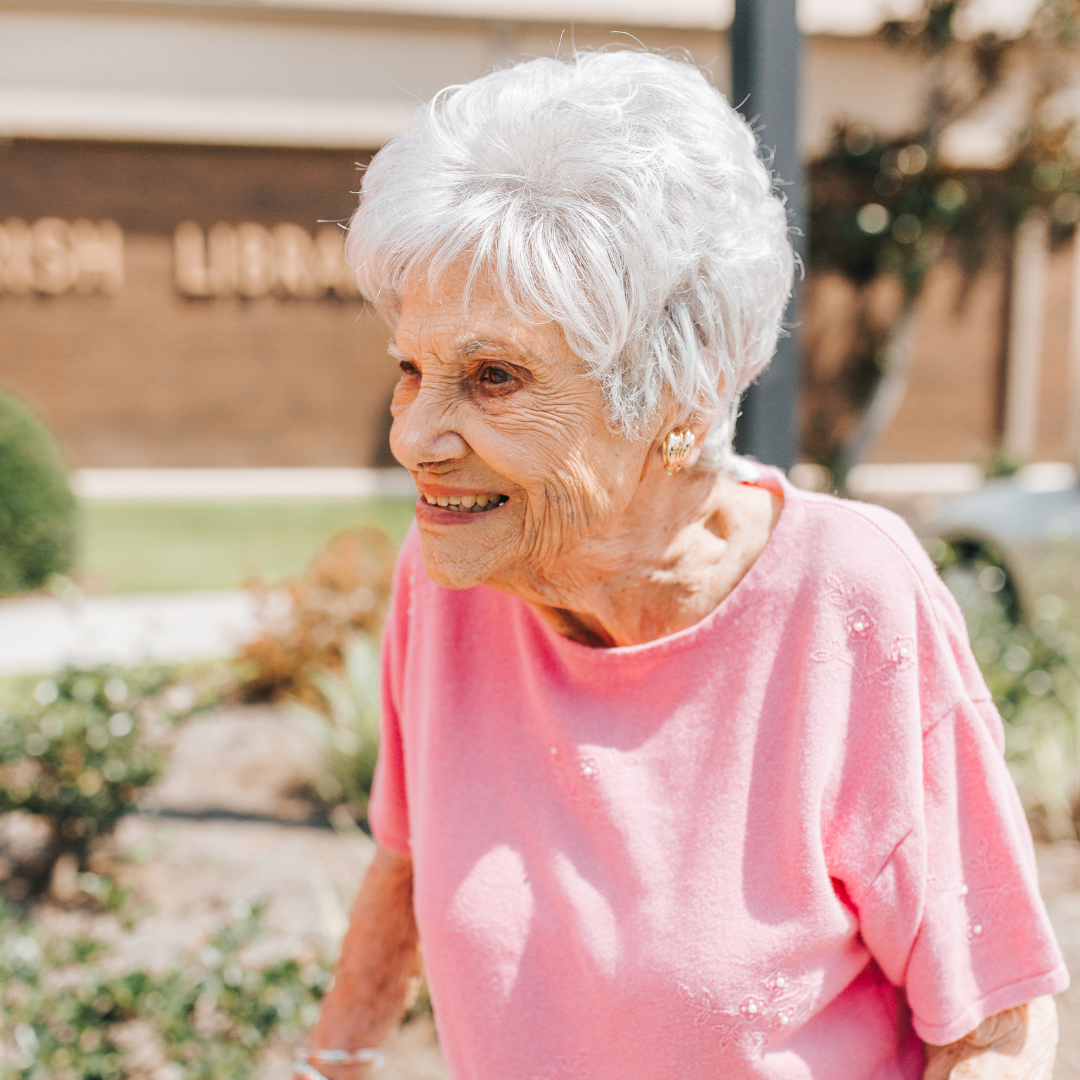A CEO of a CHAA care home has never forgotten her journey emigrating to Canada and her eventual rise through the ranks during an impressive career in health care. Today – as she meets other newcomers aspiring to work in health care — she’s struck by the barriers still facing immigrant and newcomer workers. Who knew Shakespeare was one of the culprits?
“What part about Shakespeare helps me care for residents with dementia?”
The room erupted in laughter. Almost-in-tears laughter.
Not just because what she was saying was so true (the part about having to pass grade 11 English to work as a health care aide was totally on the money). It was the hysterical glances, darting about the room, as we collectively recalled poring over Coles Notes to figure out the plot behind A Midsummer Night’s Dream. It took us all back to grade 11. Classic Literature unit. Most of us were born here. And most of us still flunked.
What was even funnier was seeing Kathy standing in front of her peers, microphone in hand, doing something we never expected.
Yes, Kathy. The CEO. The one who can go through an entire meeting without saying a word. Someone confident enough in her own skin to remain silent, for an entire hour, except maybe to offer a reassuring nod here or there.
But here she was, standing in front of nearly 50 CEOs, senior vice presidents, chief human resource officers, directors, and even some folks she’d never met before. Chatting it up like a Friday night performer at Yuk Yuk’s.
But Kathy had a story to tell. A landed immigrant herself, she started out in the trenches of front-line health care, eventually working her way up to CEO.
The I-never-would-have-believed-it-without-seeing-it-for-myself part was watching her dredge up her long-shed Chinese accent and pretend to be a former version of herself, struggling to verbalize those darn-near-impossible-to-master English consonants.
“Do you want to know what my family said to me when I asked for money for the tuition?” she cajoled into the mic. “Nothing about following my dreams. Nothing about health care being an honourable profession.”
“They asked me how long it would take to pay them back.” More cackling from the audience. “I did some quick math and knew they weren’t going to like it.”
And then, before we could even catch our breath, came the part about Shakespeare. I might even have snorted out loud at that point.
Passing grade 11’s literature classics unit on Shakespeare was among the many obstacles she recounted in her (embellished) tale about an ESL learner aspiring to become a health care aide. She went on to disclose that her fictitious mini-me failed to ‘get’ the Olde English prose and ultimately resigned herself to giving up on her dream — no thanks to a Stratford poet who died more than 400 years ago.
Even though we knew it was not her real story, we knew it was the story of so many others like her. She SO understood their stories. As the CEO of a Christian Chinese continuing care home (where English truly is a second language for many residents), she had attracted and then lost more wannabe immigrating care staff than she’d care to admit. And she wanted to challenge us to do better. Be better. Look harder for solutions. To stop turning away amazing people for the wrong reasons.
That’s when the game of snakes and ladders began. Following Kathy’s tale, all 50 of us dove into a deep-dive discussion about the journey of an immigrant worker, from aspiration to sometimes-success as a health care aide. And sometimes non-success.
We mapped out all the points along the way that we had heard are the most frustrating — the board game ‘snakes’ that push us back because they’re too difficult to overcome. Disheartening. Or just plain wrong. We also made note of all the things we didn’t know we didn’t know. That ‘unknown/unknown’ fourth quadrant that usually gets us into trouble.
And, like we always do as the board of CHAA, we banded together and got to work. We made a pledge to find solutions. To install ladders.
Then we wrote a plan about how to tackle the challenges.
In that very moment, we committed to champion this important change initiative. For Kathy. And for everyone with a story like hers.
In the weeks that followed, we hit the road, speaking with partners and stakeholders across the sector. Governments. Post-secondary colleges. Care facility staff. Drumming up interest in that infamous game of snakes and ladders.
Because we firmly believe that anybody who’s following their true passion — to provide end-of-life care to frail, elderly residents — shouldn’t get stopped in their tracks by some dude who wrote Othello.
It’s a day in the life for the member organizations of CHAA. Because in our world, not-for-profit means aiming higher.
CHAA’s close-knit association of like-minded organizations has a long history of laughing. Celebrating. And coming together to find solutions. Learn more about our board.
Related Content
Learn more about why working in not-for-profit is different.

Mission and values
Learn more about how we support Albertan's in need.

Our focus
Not-for-profit organizations occupy a special place in the health care system. We got into this line of work because we view it as a calling rather than a business. It's a mission of service. Something we're committed to, even when times are tough.

About non-profit care
Being not-for-profit means we can focus on the values and faith that have guided our mission of service for more than a century.
